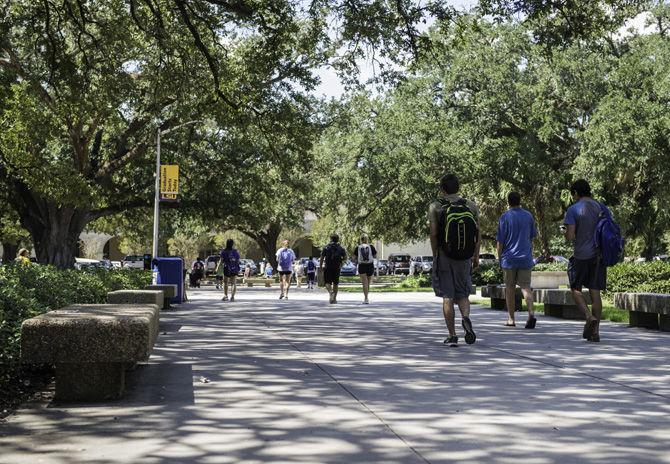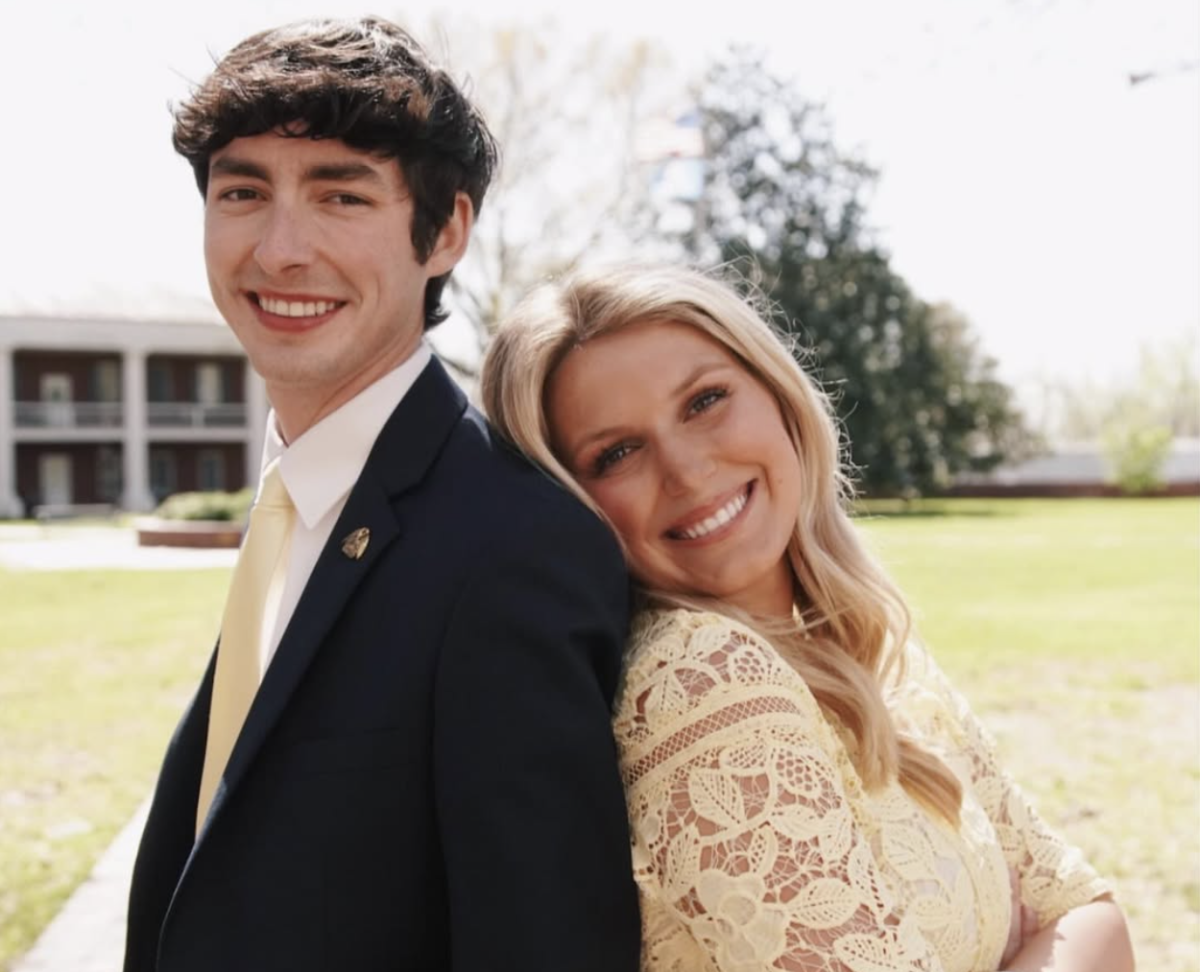Student Government’s Department of Disability Services started a conversation about cognitive disabilities on April 1 to celebrate Autism Awareness Day.
From a table in LSU’s Free Speech Alley, Director of Disability Services Kaitlyn McCaskill and Assistant Director Timothy Curol answered questions about the resources that LSU offers neurodivergent students.
To engage with students, the two student leaders offered a spread of different cookies, coffee drinks and merchandise like portable chargers and phone accessories.
The goodies drew many students in, giving McCaskill a chance to talk about what LSU does to accommodate cognitive disabilities. She also got suggestions on how the University can better serve autistic students.
Kyle Huff, a sports administration senior, walked up to the table and expressed gratitude for the department’s efforts to educate people on learning disabilities. Huff said he has a 7-year-old autistic daughter, so he’s keenly aware of the need for collegiate accommodations.
“People tend to focus on children with autism,” Huff said. “Fundraising events for autistic children see a lot of turn out, but they rarely consider adults with autism. It’s like they think that autism is something you grow out of, but it’s not.”
Huff said his daughter can retain the same information other students do, as long as she’s in an environment that supports her learning style.
“She learns just like any other student, but she can’t sit still for long,” Huff said. “If she’s in a classroom with a teacher that is trained to accommodate different learning styles, she can learn at the same rate as everyone else.”
Huff said with all the professors that LSU employs who are certified behavior analysts, the University should offer classes tailored to support students with cognitive disabilities.
He said that because autism is a lifelong disability, there needs to be a collegiate focus on integrating autistic people into working life.
“We don’t just need to make sure they can work, but that they are excited to find worthwhile careers,” Huff said.
McCaskill said that student turnout was better than she expected.
“I think students are hungry for interaction right now,” McCaskill said. “They were friendly and genuinely curious about how LSU can support psychological disabilities, and I think we all learned a lot from tabling today.”
Students took flyers featuring a list of LSU’s disability services and accommodations, and they signed McCaskill’s poster that read, “We Support Students with Cognitive Disabilities.”
“The poster is a pledge that students not only accept but really support people on campus who learn differently,” McCaskill said. “It’s one step in making campus more inclusive and changing the culture around learning disabilities.”









